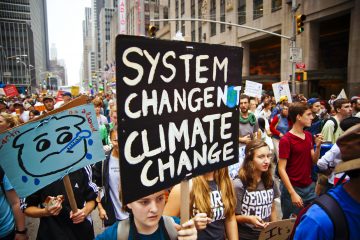
Brazil is back: Will Lula Manage to Rebuild Brazil’s Environmental Policy?
Lula signalled new winds for Brazilian climate politics in his victory speech after winning the presidential election. In his words: “Brazil is ready to retake its leadership in the fight against the climate crisis, by protecting all its biomass, especially the Amazon rainforest”. During Lula’s first presidential mandate at the beginning of the 2000s, Brazil, and other countries led by progressive leaders across Latin America, expanded mega extractive projects to fund their distributive politics. These projects are responsible for environmental degradation and threats to local people’s health and lives until this day. However, Lula also has also great achievements. Between 2005 and 2012, Brazil registered the lowest illegal deforestation in the Amazon as a result of the implementation of the …
Impacts of the COVID-19 Pandemic on the Water-Energy-Food Nexus
In a recently published journal article, we argue that there is a pressing need for a systemisation of the impacts of COVID-19 on water, energy and food security. We also explore the tangible impacts of the pandemic, including negative aspects, like increase in medical waste, and positive aspects, like some improvements in air quality and carbon emissions. The COVID-19 pandemic offers an opportunity to examine the impacts of system-wide crises on key supply sectors, such as water, energy, and food. These sectors are becoming increasingly interlinked in environmental policy-making and with regard to achieving supply security. Now, there is a pressing need for a systematization of impacts and responses beyond the disruptions on individual supply sectors. Specifically, this paper provides …
Plastic Pollution is Outpacing our Ability to Manage It
Actors around the world have taken up increasingly ambitious strategies to tackle plastic pollution: public-private partnerships like the Circulate Capital Ocean Fund; European Union strategies like banning commonly used- single-use products; and large international conferences like Our Oceans. Still, plastic waste remains a tangible and prominent environmental issue. Policymakers are wondering if the current spate of solutions will be enough to bring us to mitigate plastic waste effectively. In this article, I will examine how much and what kind of effort would be needed to significantly reduce plastic pollution emissions. I leveraged research from The Plastic Pollution Emissions Working Group (PPEG). The PPEG—a team of scientists, policy wonks, and practitioners working together under a grant from the National Socio-Environmental Synthesis …
Stronger Government Management and Policies are Necessary to Save Jakarta
On New Year’s Eve, Indonesia’s capital, Jakarta, was hit by the worst flooding since 2013. The disaster caused damages and insecurity across the metropolitan area, pushing thousands of families to try to temporarily relocate. Unfortunately, transportation systems were paralysed. The Transportation Ministry’s air transportation Director-General, Polana B. Pramesti, closed the Halim Perdanakusuma Airport because its runways were inundated by up to 80 centimeters of water. According to the National Disaster Mitigation Agency (BNPB), at least seven sub-districts in Jakarta were pounded by floods. Jakarta has long known to be vulnerable to ruinous floods. Empirical evidence shows 95 percent of North Jakarta will expectedly submerge by 2050. This is part of what motivated President Joko Widodo to announce on 26th August …

When are Green parties successful?
In 2018 Green parties are experiencing unprecedented levels of success in several advanced democracies; however, in a great many others they remain only minor footnotes to national electoral contests. Zack P. Grant argues that variation in Green party support is largely a function of good economic times, the presence of tangible environmental disputes, and mainstream parties actively attempting to emulate the positions of the Greens on their core issues (though the latter is dependent upon the age of Green parties themselves). Though it has attracted far less academic attention and media fuss than the ongoing ‘rise of the populist right’, several advanced democracies are currently undergoing a pronounced ‘Green surge’. After a somewhat disappointing 2017, in which they suffered parliamentary …

Carving up the climate communication landscape
Warren Pearce’s new ‘Making Climate Social’ project seeks to investigate the ‘contributors, content, connections and contexts of social media climate change communications’ in order to determine ‘what the social media revolution might mean for the tricky relationship between science, politics, and publics.’ Warren recently invited me to take part in a workshop to discuss his project, and this post arises out of that meeting. Apart from providing an excellent opportunity for alliteration, what can research into social media tell us about the ‘contributors, content, connections, and contexts’ of climate communication? Four types of participation In considering that question, I have been thinking how to classify the different types of participation in climate change discussions. To this end, I adapted a …









